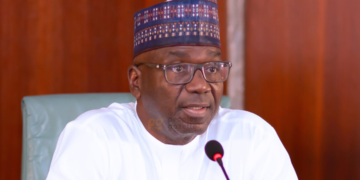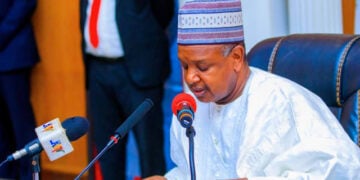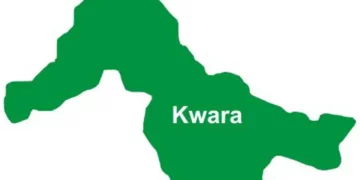Department of State Security Services (DSS) has canvassed Inter-agency collaboration to tackle the challenge of terrorists financing.
At a workshop on “Terrorism Financing Risk (TFR)” designed for law enforcement agencies (LEAs) and judicial officers at the DSS headquarters, Abuja, the agency’s director-general, Yusuf Magaji Bichi. Said, “The ever-changing nature and sophistication of threats make it imperative for security operatives to be critical thinkers in order to fashion out better and efficient ways to tackling threats.
“Among the evolving global crimes, he said, were money laundering and terrorism financing, which require the development of a working National Anti-Money Laundering and Countering the Financing of Terrorism (AML/CFT) regime for the country.
“It is my hope, that this workshop will among other things, demonstrate relevant investigative techniques adopted and to be adopted by law enforcement agencies in countering terrorism financing, as well as abilities to identify links between predicate offences and illicit financial activities. While I concede that the task to combat the illicit flow of funds may be daunting, it is however, not insurmountable. Therefore, we must all join hands with knowledge, commitment and focus to change the tide.”
The DSS boss, who was represented by director, training and staff development, Brown Ekwoaba, said, “Nigeria as a committed stakeholder, needs to contribute its quota in protecting the integrity and stability of the international financial system by terminating resources available to terrorists, as well as making it difficult for those engaged in crime not to profit from their criminal activities, as stipulated by the Financial Action Task Force (FATF).
“This process requires countries to identify, assess and understand prevailing terrorist financing risks, with a view to mitigating same. A nation striving for cohesion like ours, must effectively disrupt terrorist networks through the application of Anti-Money Laundering/ Countering Financing Terrorism measures.
“Through money laundering, criminal organizations and organized crime syndicates, benefit from their illegal activities, with some utilizing cross-border channels such as drug and human trafficking, arms smuggling among others. With criminal elements perfecting concealment of origin of illicit funds, it behooves on us, that a strengthened anti-criminal response to money laundering activities will contribute to cutting off sources of finance as well as countering the financial incentives which drive the crime,” he said.
Also, the DSS’ director of operations Joseph Dashwap, who focused on Nigeria’s efforts to meet the requirements of the Inter-Governmental Action Group against Money Laundering in West Africa, said Nigeria had enacted national legal frameworks to combat money laundering and terrorism financing, namely: “The Money Laundering (Prevention and Prohibition)Act, 2022; Terrorism (Prevention and Prohibition) Act, 2022; and Proceeds of Crime (Recovery and Management) Act, 2022. “





